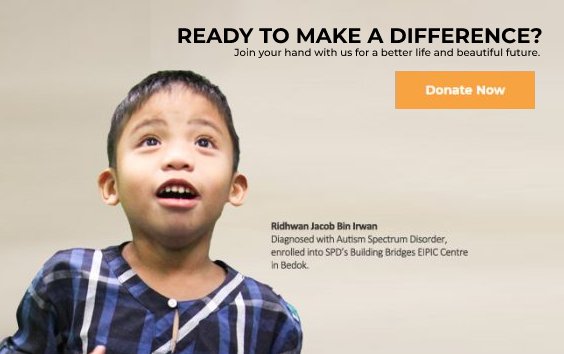Ms Chia Yong Yong
President, Society for the Physically Disabled
Distinguished guests
Students
Ladies and gentlemen
Good afternoon.
It gives me great pleasure to once again join you at this year’s Society for the Physically Disabled Education Programme Awards Presentation Ceremony. Thank you for inviting me again.
First, I would like to congratulate all the students here today. You have all worked hard and done extremely well to overcome the obstacles that have come your way. I wish you continuing success in the years ahead and hope the support that the community has provided you so far will motivate you to give back to society eventually.
I would like to commend SPD for managing and growing the SPD Education Programme to what it is today. While the programme has seen changes since its inception in 1985, I know that the core of this programme, nevertheless, remains unchanged. It aims to recognise the academic merits of students with disabilities and help them succeed in their education.
For almost 30 years, the SPD Education Programme has been an important source of support to many in the disabled community, during the good times and even more so in challenging times. I’ve been told that SPD has, to date, disbursed over $2.9 million and helped more than 3,400 children with disabilities and their families through the SPD Education Programme Bursary Award. This year alone, another $77,500 in bursaries will be disbursed to 94 students from all levels of study – from primary schools to polytechnics and universities.
The bursary award helps to ease the financial burdens of students and motivates students to strive, regardless of their background. This is very much in line with MOE’s belief of giving every child a chance to excel, regardless of their family background and their abilities.
SPD also gives out the SPD Aspiration Award, which recognises students with talents in non-academic arenas. Indeed, education is not just about academic studies; it is about developing the whole person. I thank SPD for supporting the drive towards holistic development.
Besides providing financial assistance, SPD has also put in place an integrated support system managed by a professional team of social workers. This support system provides quality transition support and educational intervention to enhance students’ learning experience in school.
SPD offers various initiatives and programmes to integrate people with disabilities into mainstream society. Through programmes that encompass rehabilitation, employment, training, assistive technology, day care and social support, SPD hopes to help people with disabilities become self-reliant and independent. And what better way to help a young person with disabilities prepare for an independent adult life than by equipping him with essential life skills through education.
Through public education and collaboration with various government agencies, SPD is also playing an important role in creating a mindset shift about people with disabilities and encouraging their acceptance in school, at work and at home. I believe a deeper understanding of the challenges and barriers faced by students with disabilities will promote greater acceptance of them in the community. This is an important step towards developing a more inclusive society in Singapore.
The Ministry of Education is committed to providing appropriate education programmes for all children. With the support of Voluntary Welfare Organisations such as SPD and corporations such as NatSteel Holdings, we have made good progress in making education more inclusive and accessible to people with disabilities. For example, physical accessibility in our schools has improved in recent years with more schools in Singapore now equipped with wheelchair-friendly facilities. Since 2008, all new schools have been built with barrier-free accessibility. Where technically feasible, existing schools have been provided with the same, as and when these schools undergo major upgrading, such as through the Programme for Rebuilding and Improving Existing Schools (PRIME) and enhancement of infrastructure as part of the Primary Education Review and Implementation (PERI) recommendations.
Besides the support provided by voluntary welfare organisations such as SPD, the community also plays an important role in helping students with disabilities overcome their challenges. Hence, I would like to take this opportunity to commend socially-conscious organisations such as NatSteel Holdings, the main sponsor of SPD Education Programme. I am happy to note that NatSteel has renewed its commitment to support the bursary awards for another two years.
I hope the successes that we are celebrating this afternoon will inspire more organisations to join us in this “Many Helping Hands” journey to build Singapore into a barrier-free and inclusive nation.

